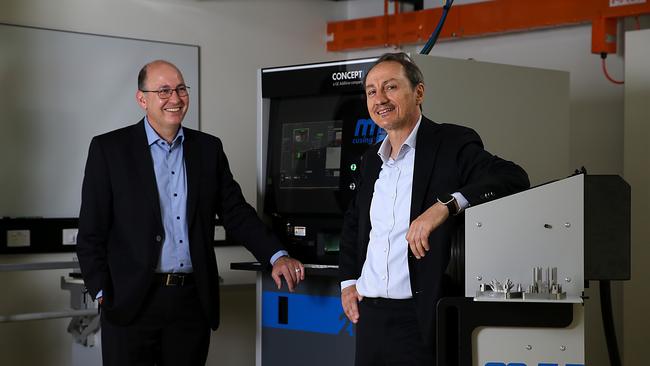Sydney Uni’s hi-tech deal with GE gives small business an edge
The University of Sydney has launched a hi-tech centre to spur research into new materials and give small business an edge.

The University of Sydney has launched a hi-tech centre to spur research into new materials and give business, particularly small and medium enterprises, a way to enter advanced manufacturing.
The Sydney Manufacturing Hub, which is being set up with state-of-the-art additive manufacturing machines, will give researchers new tools to make and test new materials and allow business to test their applicability to their enterprise.
Simon Ringer, director of the university’s core research facilities, said the advent of additive manufacturing meant materials could be made in an entirely new way with advanced 3D printers that built an object layer by layer.
READ MORE: Unis: turmoil at the top | Review heralds tertiary shake-up | Real-world work for undergrads | Covid spike in uni applications | How TAFE can save our young | Post-pandemic strategy for skills |
The Sydney Manufacturing Hub will use machines supplied by GE, which has partnered with the university.
New alloys can be made with properties that cannot be manufactured by conventional processes, and parts can be designed and built that are lighter and stronger than those in current use.
“Australian SMEs have the opportunity to de-risk their venture into the world of additive manufacturing via this research facility,” Professor Ringer said. “Australia’s universities know that they have a key role to play in the emergence of a stronger manufacturing sector, and facilities like this will be a key enabler for partnerships.”
He said that with Australia awake to the need to build its sovereign capabilities, “we need more Australian companies in advanced manufacturing”.
“We have all had a rude awakening to the risks associated with long supply chains and a dominant domestic focus on upstream or primary industrial capacity,” Professor Ringer said. “We do need those primary industries to continue to flourish, but we clearly need to reset our thinking on what Australia’s downstream capacity ought look like.”
GE’s Australian country leader Sam Maresh said additive manufacturing was a “game changer”.
“It’s a disruptive technology,” Mr Maresh said. “You can print the spare part you need. You can do things more efficiently. You can produce a part which is lighter, cheaper and stronger.”
He praised Sydney University’s capability and said the opportunity was there to work with manufacturers and SMEs.
Mr Maresh there was also a role for the university and vocational education sectors to build up the skill base needed for advanced manufacturing.
Not only does additive manufacturing require technical skills, but it also needs people who will create designs to take advantage of the possibilities offered by additive manufacturing to make things using new materials in new ways.
Mr Maresh said people from GE’s worldwide additive manufacturing business would also be working with researchers from Sydney University.




To join the conversation, please log in. Don't have an account? Register
Join the conversation, you are commenting as Logout